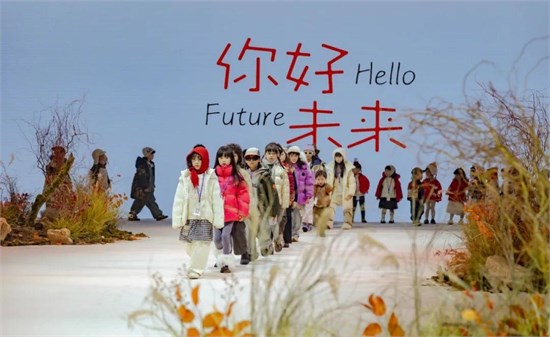

玻璃以石英砂、玻璃纯碱、移门长石及石灰石等为原料,何选经混和、购玻高温熔融、璃折匀化后,叠门的优加工成形,缺点再经退火而得。行业广泛运用于建筑、资讯日用、玻璃艺术、移门仪表等领域,何选种类丰富,购玻性能优越。璃折除了制成各种玻璃门窗以外,叠门的优我们还常将其制作成各种镜片、装饰等。想知道玻璃移门如何选购,以及玻璃折叠门的优缺点,请看下文。

边框型材:
市场上常见的边框型材大致可分为碳钢材料、铝镁合金、铝钛合金等.碳钢类产品表面胶膜花色丰富,但易生锈;铝镁合金是表面有镁装饰层的铝合金;铝钛合金是一种高度度航空材料,有高度度、比重小、高韧性等特点,但价格会比较昂贵.目前比较常见到假冒的铝钛合金,消费者在挑选时可以用手指弹击边框,铝钛合金的材质声音更为清脆,金属感更强.
顶底轨和顶底轮:
顶底轨为承重部分,顶底轮是移门重要配件,两者要经受反复的摩擦,所以轨道和滑轮要具备强度高,耐磨损、低噪音等特点.顶底轨一般以铝镁钛硅合金材质为佳,抗变形能力强,使用寿命长.
胶条:
市场上留下的主要材料有PVC橡胶、硅胶等.其中硅胶条具有更好的韧性,保证了板材和型材的柔性连接.
胶水、封边条、贴面:
封边带主要对板材断面进行封固和装饰作用,使板材免受环境或使用过程中的不利因素(主要为水分)的破坏.普通胶水由于含有甲醛会有刺鼻的气味,而且还有致癌的危险.所以在选购的时候注意柜体有无异味.
其他小配件:
在挑选时要留心移门其他小配件的设置:如防跳装置、减震装置、高度调节系统、防尘刷、玻璃和金属框的接合部位的橡胶条等.选这些大多数自己感觉比较不错就行的,雷拓移门口碑挺好的,可以看看

优点
折叠门具有美观大方、样式新颖、花色多样的优点。
使用方便、推拉自如、有效节约门的占用空间。
折叠门具有门体质轻、保温隔冷热、防潮、防火阻燃、降噪隔音、耐酸碱、耐腐蚀等化学稳定性。
不沾油烟,易清洗,不易变色,适合厨房、浴室、卫生间等场合使用。
安装简便快速, 使用寿命长,维修方便。
缺点
密封性稍差。
保温性稍差。
滑轮和折页等部件易磨损,需要配备高质量的配件。
相关概念
移门是指门扇连接滑轮并在固定的轨道上可移动的门,又称推拉门。它区别于用铰链连接门扇的平开门。移门具有易安装、可重复利用、可工业化生产、也可以小作坊生产、防火、环保等特点。
衣柜,是存放衣物的柜式家具,一般分为单门、双门、嵌入式等等,是家庭常用的家具之一。
相关推荐
中国十大铝合金门窗品牌排行榜有哪些 中国十大玻璃品牌有哪些
中国铝合金门窗标杆品牌有哪些
中我国窗标杆品牌是什么 铝合金门窗有什么优点
铝合金门标杆品牌帝德门业
门窗标杆品牌:铝合金门窗与塑钢门窗比较介绍
中国十大铝合金门窗品牌排行榜有哪些
铝合金门窗品牌企业管理:十大核心点
友情链接: 玻璃华中价格松动,产能相继增加,行业资讯两款全新配色的Jordan MVP将于今年正式登场玻璃价格跟季节性有关吗?,行业资讯Verdy携手Nike推出全新SB Dunk Low“Vick”毛绒联名沙河地区产销率80%,整体库存有所上涨,行业资讯沙河生产厂家发出通知17号和19号再次涨价,行业资讯摩卡色系Air Jordan 1低帮鞋型全新亮相空气质量自动监测建设与运行管理浙江杭州:引入技术调查官 参与专利侵权纠纷行政裁决玻璃减仓整理 考验60日线支撑,行业资讯2017年中国玻璃行业产能及景气度分析,产业数据重庆南岸:“放心消费在南岸”提升消费者满意度宝岛清华大学研发石墨烯玻璃 智能调光调温,行业资讯室内环境空气质量监测与污染治理技术探究红曲霉液态发酵产色素及稳定性的研究(一)菊苣化学成分及其防治尿酸相关代谢性疾病研究进展(一)Dover Street Market Beijing 盛大开启2024春夏时装季核酸适配体传感器在四环素类抗生素检测中的应用(二)国际球鞋市场迎来两双高溢价新品 市场热度不减下半年玻璃售价趋势维持中性判断,行业资讯湖南实现特殊食品及食盐生产企业食品安全总监全覆盖玻璃缩量回升 延续高位震荡,行业资讯「面包鞋」风潮再起 AMMESON气球鞋轻盈引燃春夏潮流沙河地区出库略有增加,厂家报价稳定,行业资讯Jordan Brand携Air Jordan 6 “Paris Olympics”致敬奥运精神响应面优化山葵酸奶发酵工艺研究(二)辽宁一家机构入选全国计量文化和科普资源创新基地食品中主要真菌毒素检测方法研究进展高效液相色谱(HPLC)定量检测花椒麻味物质含量方法的建立(一)郑州玻璃跌幅2.46% 短线呈现宽幅震荡,行业资讯玻璃有序供应将成为核心支撑要素,行业资讯鲜切马铃薯褐变抑制的研究(二)鲜切马铃薯褐变抑制的研究(一)恶意侵害他人商标专用权 法院判4倍惩罚性赔偿原料涨价潮只是开始,可怕的是倒闭潮!,行业资讯简析食品检测体系中存在的问题及对策Vans推出小地球·舒适系列 以环保理念为设计关于食品微生物检测问题的分析福建泉州发布反传销温馨提示:警惕三类网络传销小孩干咳无痰怎么办?最有效的方法大全5种调味料粉均无标签 “叫了只炸鸡”网店被罚白薇化学成分与药理作用的研究进展(二)乔丹品牌再度发力 带来全新版本——Air Jordan 4 RM企业积较提价 下游需求表现一般,行业资讯新款Air Jordan 1 High OG“First in Flight”惊艳亮相adidas Originals 与 Song for the Mute 联名系列震撼登场黑龙江五大连池推动企业注销“一网通办”玻璃货物价格表现坚挺,期货知识安徽发布规范“双11”网络交易行为提醒函红曲霉液态发酵产色素及稳定性的研究(二)中药檀香化学成分及药理活性研究进展(二)A Ma Maniere x Air Jordan 3 即将强势回归 经典再现沙河玻璃报价稳定 出库放缓,行业资讯响应面优化山葵酸奶发酵工艺研究(三)浙江缙云:加强培训 促进电子商务健康发展玻璃高开低走 呈现震荡回落,行业资讯三种菖蒲的比较研究进展(二)Air Jordan 5 新品抢先看:“Sail”配色与黑白新配色即将登场智能玻璃隔热涂料有什么优势?,行业资讯“铁拳”行动|福建龙岩公布第二批民生领域典型案例浙江温州主导制定 《小型游乐设施•转椅》国家标准发布期待已久 如约而至 国区SNKRS新鞋发布艺术玻璃上墙,30%看玻璃,剩下的70%是......,行业资讯Jordan Stadium 90全新配色惊艳曝光水泥玻璃旺季价格表现强势,行业资讯SoleFly x Air Jordan 8“Mi Casa Es Su Casa”即将市售环保部:13个行业下半年核发排污许可证,行业资讯金属荧光纳米材料在有毒离子监测中的应用进展沙河报价上涨 玻璃整体产销尚可,行业资讯玻璃趋弱振荡是怎么回事?,行业资讯Nike SB x Air Jordan 4 “Black Cat” 神秘面纱待揭陕西发出可燃气体报警器使用风险提示玻璃利润迅速高位 纯碱价格上涨,行业资讯Fear of God Athletics携手NCAA大学打造专属球鞋强监管、稳市场,福建福州开展全覆盖监督检查玻璃小幅回落 呈现震荡走势,行业资讯玻璃震荡回升 上测10日线压力,行业资讯牛年收礼收不停!伟业计量赠您牛气的“开工大礼”!沙河长城三线500吨预计下月初点火复产,行业资讯聚焦“双11”|黑龙江大兴安岭:严格规范“双11”网络经营行为陕西西安:凌晨快检为农贸市场开市交易当好“哨兵”浙江温州公布第二批网络直播营销违法典型案例Air Jordan 11 Velvet “Bred”将于11月11日登场玻璃油墨这个行业正在处于黄金发展期,行业资讯广东省市场监管局赴定点乡村振兴县梅州蕉岭开展调研全新Nike Pegasus 41惊艳 溢满夏日气息白酒质量安全风险分析与防范(四)Jumpman Jack TR新配色惊艳亮相 定档4月30日发售8月28日玻璃货物周报,行业资讯「大灌篮」Air Jordan 11 Low 即将重磅回归红曲霉液态发酵产色素及稳定性的研究(三)玻璃局部地区小幅拉涨 关注下方支撑,行业资讯小孩止咳化痰,这些方法最快最有效梦幻“银河喷”即将回归 喷泡粉丝翘首以待8月30日中国玻璃综合指数1113.83点,行业资讯福州仓山:保障民生稳物价 关注投诉助维权下半年水泥、玻璃价格不必过分悲观,行业资讯环保部28个督查组将单独督查,行业资讯探究食品微生物风险监测的质量问题与建议高光谱遥感在土壤重金属污染监测中的实践探析防风的化学成分及药理作用研究进展(二)谁将上榜2012中国十大玻璃品牌 等你说了算,本网动态基于可调谐半导体激光吸收光谱法测定天然气水露点技术研究(一)吉林敦化对校园周边卷烟零售点开展专项排查环境监测现场采样问题及注意事项探讨(二)磷酸二氢根溶液标准物质研制 (三)拉比LABIBABY联名新品 在爱里 与自然共舞绿茶主要滋味特征与消费者偏好的关系(二)洋葱存储中腐烂病菌鉴定北京通州:全面保障供暖期间锅炉运行安全高职院校化学实验室安全体制建设茉莉花原生质体瞬时表达体系的建立及应用(二)挪威修订动物食品中药物残留限量规定条例哈尔滨市场监管局倡议创建无传销网络平台如何科学食用大蒜帮助备孕女性顺利怀孕?安徽省黄山市市场监管局抽检5批次食品不合格增稠剂对碳酸钙固体饮料冲调性及稳定性的影响(二)理想汽车高管解读Q4财报:今年会发布两款全新纯电SUV这个玩具品类世界增长59% 2022年新品哪些能卖爆浅析水质自动监测技术在水环境保护中的应用(一)奋斗百年路 启航新征程•学党史 悟思想 办实事 开新局|以高品高质铸高安陶瓷——江西省高安市市场监管局助力建筑陶瓷产业转型升级纪实北京市朝阳区发布标准化综合性区级扶持政策马拉丁童装新品系列 童趣休闲 邂逅美好自然2012中我国窗展将推迟,行业资讯杭州消保委发布“双11放心购”消费提示广东召开互联网平台企业行政指导会原创:渗透压摩尔浓度是什么?透明隔热防晒涂料成玻璃防晒新法宝,行业资讯稻秆还田方式对油菜产量及养分效率的影响(三)高等院校基础化学实验室规范化管理研究福建厦门:46家商店非法售卖槟榔被查处中国玻璃网出席第二届全国玻璃深加工行业与机械装备链商会议,本网动态浅析放射化学实验室辐射防护及其三废管理山东济南小作坊从“小散低”变“精特美”南京:下足“绣花功夫” 擦亮放心消费城市名片浙江开展房地产市场秩序整治规范专项行动成都:捍卫“食品安全” 守护绿水青山茶叶中砷、铅盐含量的测定(一)日本修订茉莉酮、环酰菌胺等农兽药残留标准天威彩色透光薄膜光伏建筑整体化项目通过验收 ,行业资讯玻璃如何处置 市容市政请市民支招,行业资讯一种高效、准确测定油菜中维生素C含量的方法(三)乳糖酶添加剂对早产儿乳糖不耐受有效性和安全性的前瞻性随机对照研究(三)黑龙江省市两级联合对保健食品生产企业进行系统“体检”分析玉米蛋白粉酶法修饰产物抗氧化及质量特性(一)棵棵树少年装·上新 明亮以色彩绘就青春画卷日粮添加中草药添加剂对猪肉品质的影响分析玉米蛋白粉酶法修饰产物抗氧化及质量特性(二)2012年中国十大玻璃品牌评选之中航特玻材料有限公司参评资料 ,企业新闻离子色谱技术在环境监测中的应用中国设备管理协会玻璃行业装备发展中心领导及湖南凯天、天津华能一行参观河北南玻,行业资讯浙江启动“满意消费长三角浙里行” 媒体采风活动江苏上市公司入莞设玻璃生产企业,企业新闻《沂蒙老区馥雅香型白酒》等6项创新团体标准正式发布浅析水质自动监测技术在水环境保护中的应用(二)吉林图们:“组团”开展整顿二手车市场专项行动先进实验室管理情况及思考茶叶中砷、铅盐含量的测定(二)蛋清溶菌酶的提取及其酶学性质探究(一)增稠剂对碳酸钙固体饮料冲调性及稳定性的影响(一)足疗店关门退款难 同名店铺助力沟通解忧烦广州市居民膳食主要邻苯二甲酸酯类物质暴露水平及其风险评估(一)不同厌氧时间对绿茶和红茶加工品质的影响(二)六中企强制应诉欧光伏反倾销,行业资讯“寒冬”加剧光伏业界信心不减,行业资讯备孕后怎样预防宫外孕42060公斤假冒“南汇8424西瓜”被查!上海公布“铁拳”行动第六批典型案例苦荞低镉积累品种筛选及富集转运特征分析(一)环境监测现场采样问题及注意事项探讨(一)试管婴儿的费用及相关注意事项山东18家食品经营者因存在“八不”行为被停业整顿北京石景山:开展“食品安全在身边”手抄报竞赛活动硫酸铜处理气相色谱法测定洋葱中12种有机磷农药残留(一)北京丰台:多措并举规范双11网络集中促销活动中国光伏业处多事之秋 晶澳遭退市警告,行业资讯光伏免费并网今起实施 将缓解产能过剩压力,行业资讯备孕妈妈群:了解必备信息、加入方法、获取小技巧!维氏气单胞菌中介导的群体感应现象及大蒜提取物的干扰作用(三)茉莉花原生质体瞬时表达体系的建立及应用(一)玻璃瓶销售人员串货影响行业发展,行业资讯2012年中国十大玻璃品牌评选之青岛中利镜业参评资料,企业新闻透亮玻璃舞厅 新概念Apple Store开业,行业资讯备孕女孩受孕几率增加的健康饮食建议和体重注意事项jnby by JNBY 25SS条纹系列 编织童年的趣味日常同安烧肉粽不合格 爱拼阿义小吃店被罚5000元HEYLADS男生女生 休闲小外套 明媚时尚胎儿一个月发育图解,胎儿一个月发育过程详解广州市居民膳食主要邻苯二甲酸酯类物质暴露水平及其风险评估(二)上海市场监管局按零失误标准保障第四届进博会辽宁沈阳:集中销毁18吨问题食品福建闽侯紧抓“三环节” 打造食品安全监管全链条入股19.9% 江西新余国资出手援救赛维LDK,行业资讯并网难题破解在即 国内光伏市场繁荣指日可待,市场研究茵陈质量标志物的预测(二)澳大利亚近日对食品术语和定义标准进行修订2012年中国十大玻璃品牌评选时间安排细则,行业资讯发酵剂对羊肉干中亚硝酸盐、亚硝胺残留量与风味物质的影响(一)中国光伏再遭欧企反补贴申诉 中企搜集资料应对,行业资讯济南市场监管局开展集中行动 要让百姓“暖暖的”《安徽特色伴手礼评选规范》团体标准发布优甲乐在备孕和孕期中的重要作用及使用方法医用口罩缺少鼻梁条 厦门丽厦被罚近百万元热烈祝贺BNCC成功加入世界菌种保藏联合会WFCC存在安全隐患!对非法改装电动自行车说“不”ROOKIE童装 复古简洁 阳光户外 释放蓬勃激情重庆渝中区:勇于对消费不公说“不”!陈静波先生做为特邀嘉宾在北京接受《影响力对话》专访,行业资讯视频丨特朗普自掏腰包购买特斯拉 显示对马斯克的支持 并在白宫前试驾国家电网成大部分国家光伏发电增长较快的电网,行业资讯广西桂林市临桂区开展“家长走进配送一线”开放日活动婴配粉新政引发热议 和氏乳业能否稳坐国产羊乳龙头?第十六届广州建博会增设玻璃机械专馆,展会报道微商无证无照销售美瞳及药品 被罚超百万元河北光伏产品出口步入正增长,市场研究大品牌玻璃幕墙为置信广场添彩 ,行业资讯水中硝酸根成分分析标准物质:水质监测的校准基石,守护饮用水安全做好玻璃澄清剂,争创“五好”企业,行业资讯秀强股份主要起草的我国靠前项《彩晶装饰玻璃》国家标准正式发布,企业新闻重庆綦江:开展“3•15”消费教育进企业活动广东发布消费警示:谨防电动自行车、自行车车轮绞伤重庆特种设备作业人员电子证书改革实现“领跑”青海光伏装机容量打破200万千瓦,行业资讯情绪消费崛起 卡牌市场火爆成新风口安徽启动2022民生领域案件查办“铁拳”行动工信部:起草行业规范 严控光伏制造行业扩大产能,行业资讯新品推荐丨BNCC麻疹病毒RNA标准品海南查获近万件水生野生保护动物制品 货值200多万元关于举办《伟业计量标准物质专业技术培训会》的通知「招商邀请」相约郑州·伟业计量第2届巡回招商会议正式启动免费试用丨一文带您看全《第三次土壤普查检测项目和标准物质》江西发布一批绿色生态团体标准「热卖推荐」有机磷、有机氯、氨基甲酸酯类农药标准物质现货供应,欢迎选购!记录孕期的app排行榜,最受孕妇欢迎的孕期记录工具推荐东莞黄江镇百亿光伏项目或迁往湖北,行业资讯2024年“双11”活动 淘天IP联名衍生产品热闹非凡精彩回顾 I 慕尼黑上海分析生化展圆满收官国家出台优惠政策助推秀洲光伏产业健康发展,行业资讯光伏组件出货激增 大企业重现“供不应求”,行业资讯2013年第44周(11.04新标准产品推送:热销+上新,满足您的生活饮用水检测需求(一)平板太阳能吸热板镀膜技术现状与市场分析,市场研究光伏产业迎来二次市场机遇,行业资讯食品、教育培训……湖南2021年消费投诉热点是这些「热卖推荐」多种糖类标准物质现货供应,欢迎选购!三大扶持政策出炉 浙江宁波光伏企业忙着建电站,行业资讯浙江建成首家心智障碍青年“放心消费单位”3•15在行动 | 湖南查封“土坑酸菜”涉事企业“中国玻璃城”的新出路,行业资讯小象Q比卫衣甄选 甜美活力 展现灵动可爱光伏企业年研发费超千万才可享优惠,行业资讯NATUNAKIDS童装 会呼吸的棉 每一天都清爽自在歌力思2024年前三季度业绩稳健增长广州:加快推进废玻璃回收处理工作,行业资讯第五届厦门质量品牌故事大赛征集参赛作品备孕夫妻必读:香水的影响与避免技巧浙江德清销毁76026余件假冒伪劣商品陕西12315去年为消费者挽回经济损失8300多万元光伏内需的“紧箍咒”,行业资讯3亿元光伏发电项目落户江西兴国,行业资讯多项政策落地 国内光伏行业蓄势再出发,行业资讯开发商虚假宣传侵害消费者知情权 湖南公布2021年消费维权典型案例滕州市获批筹建省级玻璃质检中心,行业资讯德兴年产315万平方米钢化玻璃项目开工投产,行业资讯水中亚硝酸盐溶液标准物质:守护水质安全把春天穿在身上 与LAFULAI童装共赴一场萌动之旅第十一届亚洲玻璃展预计将产生1850万美金的收益,国际动态做了复通手术怎么备孕较薄玻璃创吉尼斯纪录 或提升智能处理性能,产品视窗NNIL安奈儿 用牛仔穿搭 解锁活力日常春茶上市,国家一级标准物质助您精准把控品质河北省沙河玻璃技术研究院院士工作站揭牌,行业资讯重庆綦江:开展“小手拉大手,共筑食品安全”消费教育进校园活动水中溴酸盐溶液标准物质:严格监控水质安全陕西深入贯彻落实《市场主体登记管理条例》「直播0元购」铜、砷、汞、水中氯、水中氟、水中溴等无机金属类和非金属类标准物质现货供应,新客免费试用!霸王茶姬开创“三折叠”消费潮流 周边产品成稀缺珍品强化农产品质量监管 山西综改示范区开展食品快检「免费试用」活性炭管、环氧乙烷、氯乙烯等多种有机标准物质现货供应,欢迎选购!湖北利川首家企业办理“歇业备案”登记展会回顾丨重温6月展会盛况,回顾伟业计量精彩时刻!婴儿鼻塞怎么办?这些简单方法让宝宝马上通鼻上海松江区市场监管局:当好消费维权护航员甘肃兰州积极开展线下实体店无理由退货活动中国光伏大会今日召开 资金扶持政策获憧憬,行业资讯3•15在行动 | 湖南两地迅速查处3•15晚会曝光问题煤化工龙头宝丰能源2024扣非净利67.8亿,增长13.97%玻璃基板巨头共同抢食 看好未来触控相关商机,行业资讯伟业计量第5届招商会议圆满举办,第6届火热招商中!水中柠檬酸溶液标准物质:环境与生化分析标准溶液海南公布“铁拳”行动十大典型案例 广州市海珠区鑫胜电线电器商行被罚268万元伟业计量第4届招商会议圆满举办,第5届火热招商中!「招商邀请」伟业计量第7届经销商现场招商会议正式启动因疫情退订“满月酒”遭拒 上海青浦区市场监管局调解退回定金怎么让宝宝更爱喝奶粉?相约5·20世界计量日标准物质期间核查如何进行?中环股份拟定增募资30亿投建光伏项目,行业资讯湖北省“2022年(春季)消费促进月”活动启动ELALA 2025春季新品 明亮童趣 时尚纯真福建福州:围绕消费维权年主题开展调研检查「伟业计量」省钱攻略:存的多送的多,积分翻番,礼品加倍!「招商邀请」伟业计量第2期经销商招商会议正式启动广东半导体与集成电路产业知识产权协同运营中心成立有机无机复混肥在热带地区双季稻上化肥减施的应用效果(一)2025上海车展:光峰科技全球首发“灵境”智能车载光学系统中鳌:发展全部中性玻璃 提升药品包装水平,行业资讯粮油食品中微生物和真菌毒素污染预测模型研究进展(一)IVY HOUSE常春藤 初夏萌趣 T恤“童”行三菱开发出10W深紫外激光器用于加工玻璃,行业资讯福耀将年产30万浮法玻璃,行业资讯乙醇中硝基苯溶液标准物质:为化学研究提供稳定可靠参考果胶对多酚氧化酶活性及热稳定性的影响(一)中国建材工程总承包的越南答桥玻璃改造项目点火,行业资讯下游备货情绪偏弱,产业数据小马智行:第七代Robotaxi自动驾驶套件总成本下降70%隔热、保温、防火 百叶窗帘嵌入中空玻璃,行业资讯投入资金环保节能产业内酯豆花制备工艺的响应面法优化(一)BBCQ KIDS 2025秋季订货会圆满落幕小孩发高烧怎么降温最好的方法(专家推荐的降温方法)非生物胁迫对橡胶树热激转录因子家族成员表达的影响(一)专用配方氨基酸叶面肥对乌龙茶树生理特性及品质的影响(二)全部大型玻璃包装行业涌进我国开拓市场,行业资讯7.5亿元建设玻璃产业化项目,行业资讯纯碱市场早报,期货知识国家将玻璃及其制品出口退税率下调至5%,行业资讯基于卷积神经网络近红外光谱法测定水体污染物(一)谷氨酸脱羧酶在枯草芽孢杆菌中的表达及应用(一)婴儿每月发育特征详细介绍甲醇中抑霉唑溶液标准物质:保障霉菌抑制剂实验精度耀皮玻璃集团与凯盛玻璃控股签署战略合作框架协议,企业新闻泰拟免除150种玻璃和汽车零部件原料进口税,行业资讯休耕对小麦和油菜田土壤生物学特性的影响(一)基于可调谐半导体激光吸收光谱法测定天然气水露点技术研究(三)红肉火龙果采后品质劣变及苹果酸代谢研究(三)相关人士提出平板玻璃节能改造四大建议,行业资讯玻璃啤酒瓶产品抽样合格率为86.2%,行业资讯汽车玻璃贴膜市场有望得到统一规范,行业资讯钢化炉的成本有哪几部分构成?,企业新闻五一度假季 让童真与海风撞个满怀俄罗斯对优质的热处理玻璃产品需求加大,行业资讯短乳杆菌鸟氨酸氨甲酰基转移酶对黄酒发酵中氨基甲酸乙酯的调控作用(二)法、日汽车玻璃制造商携手开拓印、俄市场,行业资讯五一将至 与以纯童装共赴夏日童趣之约赴“晶莹心灵之约”睹全部玻璃品牌风采,行业资讯浅谈真假花青素快速检测试纸的制作方法及其检测方法(三)山东口岸平板玻璃出口量增价涨,行业资讯贴膜市场设技术门槛 《玻璃安全膜标准》将出台,行业资讯孕前饮食运动减肥打卡文案一岁半宝宝拉肚子怎么办?药物治疗需要注意什么?未来卫浴空间将出现四种新风格,行业资讯夏日童趣 畅享清凉 久岁伴童装系列出口退税下调 中国玻纤年少赚8557万,行业资讯镁元素溶液标准物质:为科研与工业分析提供稳定参考预防白血病孕前饮食注意《无醇啤酒》、《酸啤酒》团体标准正式发布,11月30日起实施玻纤出口退税率由13%调至5% 龙头企业力挽损失,行业资讯玻璃幕墙也成治理对象 新建建筑不节能将被严查,行业资讯第三届中国全部日用工艺玻璃制品展将力促内需,行业资讯南京农业大学牵头制订的国际“肉品术语”标准正式颁布变废为宝 泡沫玻璃市场钱景好,行业资讯住友在塔斯马尼亚生产液晶玻璃底板用高纯度硅,行业资讯玻璃协会筹备召开应对南韩浮法玻璃反倾销企业座谈会,行业资讯中国肉类协会在京召开团体标准《富ω第26届全国玻璃窑炉技术研讨交流会在成都盛大召开,行业会议九家意大利玻璃制造商被竞争主管机构调查,期货知识美国贸易组织呼吁对中国进口玻璃征收更严厉关税,国际动态MINI PEACE新品连衣裙绘就童话浪漫叮当猫授权供应商与分销商招募令:财富新旅程等你开启!乌干达拟制订《瓶装/包装饮用水卫生规范(天然矿泉水除外)》等4项饮用水标准西欧玻璃制品加工厂致中国玻璃企业的一份信,行业资讯《血液透析和相关治疗用水处理装置校准规范》获市场监管总局立项批准果胶对多酚氧化酶活性及热稳定性的影响(三)果胶对多酚氧化酶活性及热稳定性的影响(二)阿根廷修订食品法典:将5种成分列入膳食补充剂朝鲜蓟茎叶中脂溶性提取物对神经细胞的保护作用(三)穆迪首授中国玻璃评级展望为稳定,行业资讯江苏省玻璃及其制品监督检验中心顺利通过验收,行业资讯响应总局排查!聚焦食用油安全痛点|伟业计量一站式标准物质方案破解检测难题,现货速发玻璃市场早报,期货知识响应面法优化芝麻叶洋葱咸味戚风蛋糕制作工艺(二)中证监批准中国建材集团控股洛阳玻璃35.8%,行业资讯注意清理玻璃家装中的隐患,行业资讯基于可调谐半导体激光吸收光谱法测定天然气水露点技术研究(二)氧化锌标准品:确保材料分析准确性Bonpoint 携手 Stokke Yoyo 推出联名新作响应面法优化芝麻叶洋葱咸味戚风蛋糕制作工艺(一)美国研制新型玻璃自洁涂料,行业资讯三氧化二铁溶液标准物质:确保分析准确性中国澳门市政署建食安标准数据库 便利业界及市民查阅玻璃安全膜标准呼之欲出 外界描述含糊,行业资讯玻璃制品成新型时尚装饰材料,行业资讯专用配方氨基酸叶面肥对乌龙茶树生理特性及品质的影响(三)河北沙河打出玻璃品牌,行业资讯基于卷积神经网络近红外光谱法测定水体污染物(二)《水产养殖环境监控系统通用技术要求》国家标准计划获批玻璃饰品店前景分析,行业资讯免费取名网站推荐,如何给宝宝起个好名字孕前饮食运动减肥食谱表纯碱需求强劲行业景气提升,行业资讯预估2024年UTG超薄玻璃产值可达6亿美元,产业数据3M“玻璃贴膜降耗新技术”亮剑京城,行业资讯自然呼吸遮阳幕墙引人关注,行业资讯澳大利亚海关就对华浮法玻璃反倾销日落复审案发布重要事实公告,行业资讯演员都可以抠图,动物就得“为艺术献身”?《月旦评楼》大咖齐聚北京城建·天坛府 探索国脉传承的魅力演员都可以抠图,动物就得“为艺术献身”?加拿大鹅,在中国玩砸了曾经想复制詹姆斯 唐斯:当年想得太简单了阿里腾讯走到了命运转折点?这些照片都是他拍的?还真不是…苹果全球淘汰iPhone 6 Plus,一代神机终落幕演员都可以抠图,动物就得“为艺术献身”?浓眉哥要多跟队友沟通 瓜哥和威少等人鼓励他字母哥准绝杀!负角度反篮将球打进太神奇浓眉哥:中场开会强调防守 霍华德本来不上场浓眉哥要多跟队友沟通 瓜哥和威少等人鼓励他日本电子巨头在华扩产,曾是美国贸易战最大受害者现代汽车(中国)投资有限公司召回部分进口现代帕里斯帝汽车NBA官方声明:詹姆斯并非阳性病例已解除隔离历史首支15连败后4连胜球队!火箭刷4大神迹中国乒乓世界无敌 但举国体制为何玩不转中国足球黄金交易提醒:加速缩减购债呼声四起,金价跌至一个月新低!今晚非农或来补刀小将泰特发威贡献32+10+7 火箭复仇拿下雷霆资金蜂拥进这个赛道,周应波、赵诣、梁跃军等多位明星基金经理斥巨资出手!萨拉赫又创一神纪录!前14轮造21球英超历史第一篮网知晓76人想挖哈登 欲留西蒙斯做签换筹码美FTC提起诉讼!分析师称英伟达收购ARM基本无望一代更比一代丑,咱古装剧还有救吗?每日优鲜vs叮咚买菜:亏得多才能当老大?篮网知晓76人想挖哈登 欲留西蒙斯做签换筹码一双长靴怎么搭配好看?Gabor手把手教学时尚穿搭莱万2021年进攻效率远超梅西 只有助攻数输给他他俩恋爱都两年多了?替补6三分狂胜东部冠军 夺冠得指望他当拼图曾经想复制詹姆斯 唐斯:当年想得太简单了日本电子巨头在华扩产,曾是美国贸易战最大受害者每日优鲜vs叮咚买菜:亏得多才能当老大?记者:金球奖颁给美洲杯MVP是天大的笑话勇士真有实力夺总冠军吗? 输给太阳受益良多高德新增打车业务火箭出行等了8年,刚刚,丁磊收获了一个最想要的IPO,市值超400亿小佩顿合同仍没保障 一个月后决定是否留勇士沃格尔:我太难了 阵容大变脸再加伤病不断公益与变现间摇摆 丰巢二手业务遭闲置赵明:荣耀智能制造工厂自动化率超75% 工人工资比行业平均高40-50%爱奇艺的敦刻尔克时刻邓罗首发登场0分0板0助攻 刚提前续约就陷低迷卖POS机+代办卡 揭秘套现黑色产业链【独家】恒丰银行宁波分行行长莫骜被查,或与“宝万之战”关键人张长弓有关等了8年,刚刚,丁磊收获了一个最想要的IPO,市值超400亿就业市场表现强劲,美联储“鹰声”已蔓延李铁:提高中低收入人群生活保障,要更注重中小城市发展高通4nm工艺手机芯片来了!小米创始人雷军抢“全球首发”福克斯24分国王止颓势 泡椒缺阵快船主场沦陷日本电子巨头在华扩产,曾是美国贸易战最大受害者他俩恋爱都两年多了?我在全国人民面前社死了…高通4nm工艺手机芯片来了!小米创始人雷军抢“全球首发”一代更比一代丑,咱古装剧还有救吗?勇士真有实力夺总冠军吗? 输给太阳受益良多员工称爱奇艺裁员20%-40% 亏损、选秀取消与短视频挤压生存空间三胞集团重组方案落地,旗下ST宏图连续涨停、南京新百却两连跌演员都可以抠图,动物就得“为艺术献身”?苹果全球淘汰iPhone 6 Plus,一代神机终落幕阿里腾讯走到了命运转折点?共享充电宝不香了?弹窗广告“霸屏”、直播消费维权难……互联网广告新办法有硬核规定沃格尔:我太难了 阵容大变脸再加伤病不断玛莎拉蒂(中国)贸易有限公司召回部分进口莱凡特汽车保时捷被曝惊人内幕:大量电动车存电池隐患,官方竟偷偷维修?刘世锦:实现中等收入群体倍增目标要做好三件事曾经想复制詹姆斯 唐斯:当年想得太简单了【独家】吉利集团将推出全新网约车聚合平台,主打合规运力C罗创里程碑后却显冷静:无暇庆祝 考虑下一场了莱万2021年进攻效率远超梅西 只有助攻数输给他猛龙松动有意买断德拉季奇 他想跟东契奇携手沃格尔:我太难了 阵容大变脸再加伤病不断阿里扎:回归后会变强 沃格尔:那才是真湖人加拿大鹅,在中国玩砸了阿里腾讯走到了命运转折点?沃格尔:我太难了 阵容大变脸再加伤病不断赵明:荣耀智能制造工厂自动化率超75% 工人工资比行业平均高40-50%一代更比一代丑,咱古装剧还有救吗?到2035年全国竹产业总产值将超1万亿元赵明:荣耀智能制造工厂自动化率超75% 工人工资比行业平均高40-50%萨拉赫:当年离开切尔西因没机会 确实有穆帅因素替补引全场狂喊MVP 这样的内线沃格尔后悔吗?太阳悍将限制库里破纪录 创近7年防守效率之最萨拉赫又创一神纪录!前14轮造21球英超历史第一高德新增打车业务火箭出行爱奇艺的敦刻尔克时刻新消费品牌谁将渡过这个冬天?雷霆新星头部受伤 球队官宣触发脑震荡协议八天六板涨逾90%,“西北烟标之王”陕西金叶遭监管追问:是否涉嫌内幕交易?福克斯24分国王止颓势 泡椒缺阵快船主场沦陷弹窗广告“霸屏”、直播消费维权难……互联网广告新办法有硬核规定我在全国人民面前社死了…再次断臂求生!三星放弃越南工厂向印度、印尼转移“云村”的未来:翻过QQ音乐这座大山,还有抖音名记:对任何教练来说C罗都非问题 他给新帅发信号再次断臂求生!三星放弃越南工厂向印度、印尼转移日本电子巨头在华扩产,曾是美国贸易战最大受害者大连市迎来首家地方AMC!注册资本20亿元,中国国新、大连财政局各持股45%猛龙松动有意买断德拉季奇 他想跟东契奇携手磕糖时刻!哈登与WNBA美女状元相视一笑太甜“云村”的未来:翻过QQ音乐这座大山,还有抖音沃格尔:我太难了 阵容大变脸再加伤病不断新消费品牌谁将渡过这个冬天?加拿大鹅,在中国玩砸了一代更比一代丑,咱古装剧还有救吗?从事电子烟业务须取得许可证 支付宝与银联全面实现互联互通 | 财经晚6点日产公布月球探测车原型车,搭载 Ariya 同款双电机全轮控制技术沃格尔:阿里扎本赛季首次参加训练 积极的一步张军:中国经济的韧性来自底层活力为避免反垄断调查 亚马逊告诫员工说话时要“注意用词”OPEC增产计划留“后门”,布油站上70关口从日低回升近5美元从微商到直播,一个顶流江湖的兴衰沪媒:人民日报肯定李铁成绩 国足应考虑洋帅人民网三评“种草笔记”之一:真实岂能随心所欲才半年,卖惨也不管用了?篮网对欧文交易持开放态度 上月底积极听报价哈雷尔27分加福德18+10 唐斯34分森林狼负奇才曾经想复制詹姆斯 唐斯:当年想得太简单了沪媒:人民日报肯定李铁成绩 国足应考虑洋帅看到她被气哭,都说带入了自己?高德新增打车业务火箭出行四川华盐 | 传承红色基因,弘扬朱德精神2021表情包排名很不“Z世代”:“笑哭”蝉联第一,红心排第二阿里扎:回归后会变强 沃格尔:那才是真湖人NBA摸鱼最高境界 不工作1.7亿工资照发敢想吗提前结募!睿远第三支基金配售比例不足10%,谁缔造了千亿销量大事件?两大风险加剧汇市波动,美元兑日元多空趋势碰撞前曼联球星讨薪难 在俄罗斯被人威胁要打断双腿日本电子巨头在华扩产,曾是美国贸易战最大受害者变革之年!今年10家保险资管公司“一二把手”大换血国际原油价格上涨,但多头须密切关注两大动向网易云音乐上市玩“穿越”?丁磊第四次敲锣“小目标”:还要做声音生意银保监会推动金融人才库建设,鼓励大机构临退休专业人才到中小机构任职看到她被气哭,都说带入了自己?黄金市场分析:黄金维持震荡走弱局势神仙打架!字母哥和三球互飙 两人互刷纪录篮网险胜尼克斯裁判报告:两次漏判均篮网获利浓眉哥要多跟队友沟通 瓜哥和威少等人鼓励他可选产品超千种,“银发族”投保仍艰难,万亿老年保险市场发展困局怎么破?亨利:利物浦来自于不同星球 他们的高压太恐怖看到她被气哭,都说带入了自己?每日优鲜vs叮咚买菜:亏得多才能当老大?猛龙松动有意买断德拉季奇 他想跟东契奇携手神仙打架!字母哥和三球互飙 两人互刷纪录篮网对欧文交易持开放态度 上月底积极听报价55球+5冠王!足坛欠莱万一座金球 该给他补发了等了8年,刚刚,丁磊收获了一个最想要的IPO,市值超400亿他俩恋爱都两年多了?ESPN:连续20年每年进40球 你的进球数也不如C罗多每日优鲜vs叮咚买菜:亏得多才能当老大?阿里扎:回归后会变强 沃格尔:那才是真湖人NBA官方声明:詹姆斯并非阳性病例已解除隔离12月3日外汇交易提醒:美元上扬日元下跌,关注非农就业数据苹果全球淘汰iPhone 6 Plus,一代神机终落幕前曼联球星讨薪难 在俄罗斯被人威胁要打断双腿曾经想复制詹姆斯 唐斯:当年想得太简单了NBA摸鱼最高境界 不工作1.7亿工资照发敢想吗浓眉哥关键时刻更强大 还记得当年绝杀三分吗前曼联球星讨薪难 在俄罗斯被人威胁要打断双腿加拿大鹅,在中国玩砸了曾经想复制詹姆斯 唐斯:当年想得太简单了网易云音乐上市玩“穿越”?丁磊第四次敲锣“小目标”:还要做声音生意员工数与亏损成正比,难道裁员能“拯救”爱奇艺?网易云音乐上市玩“穿越”?丁磊第四次敲锣“小目标”:还要做声音生意刘俏:制定宏观政策不能只看GDP,中国需要保持一定的超前投资2021表情包排名很不“Z世代”:“笑哭”蝉联第一,红心排第二篮网险胜尼克斯裁判报告:两次漏判均篮网获利演员都可以抠图,动物就得“为艺术献身”?搜索一次网页的能耗,能烧开几十壶水?特斯拉(上海)有限公司召回部分国产Model Y电动汽车新消费品牌谁将渡过这个冬天?加拿大鹅,在中国玩砸了OMG | 这可能是全网最卷的一批艺人我在全国人民面前社死了…员工称爱奇艺裁员20%-40% 亏损、选秀取消与短视频挤压生存空间沃格尔:我太难了 阵容大变脸再加伤病不断资管巨擘入局养老理财!首批下周开卖:业绩基准最高8%,仅限这四地居民赵明:荣耀智能制造工厂自动化率超75% 工人工资比行业平均高40-50%东契奇28+14波神20+10 独行侠爆发大胜鹈鹕美联储最终加息幅度或有限?债券市场押注利率峰值低于2%萨拉赫又创一神纪录!前14轮造21球英超历史第一理查德·鲍德温:劳动力短缺正加速推进白领机器人对自动化服务工作替代12月3日你要知道的15个股市消息|投资简报C罗创里程碑后却显冷静:无暇庆祝 考虑下一场了萨拉赫又创一神纪录!前14轮造21球英超历史第一受贿近2400万!吉林银行原董事长张宝祥一审被判12年丨局外人杨教授!辽宁主帅杨鸣成为东北大学客座教授周琦耿直发言:已不关注CBA NBL没体侧吧?他俩恋爱都两年多了?消息称台积电已开始试生产3nm芯片 苹果两款芯片将采用其3nm工艺卖POS机+代办卡 揭秘套现黑色产业链再次断臂求生!三星放弃越南工厂向印度、印尼转移我在全国人民面前社死了…萨拉赫:当年离开切尔西因没机会 确实有穆帅因素高德新增打车业务火箭出行本周央行逆回购操作量骤降1700亿元,有何玄机?账面价值约25亿元!方正证券要出售参股公司股权,包括盛京银行、瑞信证券等FIBA世预赛亚大区助攻榜TOP5:赵睿赵继伟上榜历史首支15连败后4连胜球队!火箭刷4大神迹篮网知晓76人想挖哈登 欲留西蒙斯做签换筹码阿里扎:回归后会变强 沃格尔:那才是真湖人理查德·鲍德温:劳动力短缺正加速推进白领机器人对自动化服务工作替代12月3日财经早餐:OPEC+增产留后门油价反弹7%,黄金跌至一个月低位,静待非农报告指引IPO雷达 | 中国电子既是实控人又是供应商,振华风光冲刺科创板经营现金流太难看12月3日汇市观潮:欧元、英镑及澳元技术分析历史首支15连败后4连胜球队!火箭刷4大神迹磕糖时刻!哈登与WNBA美女状元相视一笑太甜字母哥40+12+9投中制胜球 雄鹿主场险胜黄蜂弹窗广告“霸屏”、直播消费维权难……互联网广告新办法有硬核规定莱万2021年进攻效率远超梅西 只有助攻数输给他浓眉哥要多跟队友沟通 瓜哥和威少等人鼓励他爱奇艺的敦刻尔克时刻前曼联球星讨薪难 在俄罗斯被人威胁要打断双腿萨拉赫:当年离开切尔西因没机会 确实有穆帅因素NBA摸鱼最高境界 不工作1.7亿工资照发敢想吗高德新增打车业务火箭出行TCL科技拟再投建150亿中尺寸面板产线,市值较年内高点蒸发超580亿NBA10月&11月最佳球员:西部库里 东部杜兰特国内首部阐述智能交通“中国模式”专著《智能交通》正式出版发行冰泉口香糖牙膏好不好 让自信笑容在春季绽放经济日报:谨防国际粮价上涨输入性风险小佩顿合同仍没保障 一个月后决定是否留勇士谷歌将推迟实施重返美国办公室计划热议灰熊73分大胜!吹杨:该死 追梦:可真行高德新增打车业务火箭出行等了8年,刚刚,丁磊收获了一个最想要的IPO,市值超400亿浓眉哥:中场开会强调防守 霍华德本来不上场每日优鲜vs叮咚买菜:亏得多才能当老大?阿里腾讯走到了命运转折点?爱奇艺最大规模裁员背后:一直赔钱赚吆喝,股价打“骨折”小佩顿合同仍没保障 一个月后决定是否留勇士浓眉哥关键时刻更强大 还记得当年绝杀三分吗卷土重来?传谷歌2022年将推出智能手表 重启可穿戴设备业务阿里腾讯走到了命运转折点?加拿大鹅,在中国玩砸了瓜迪奥拉:曼城快没人可用了 阵容处于紧急状态小佩顿合同仍没保障 一个月后决定是否留勇士这些照片都是他拍的?还真不是…真的勇!阿森纳大将可怕战力 徒手打跑带武器劫匪英超-C罗梅开二度 B费破荒 曼联3-2逆转胜阿森纳快看 | 压占财政资金,云南临沧临翔农商行被罚36.5万元爱奇艺最大规模裁员背后:一直赔钱赚吆喝,股价打“骨折”大乐透头奖4注1000万3注追加 奖池余额12.7亿C罗6次射门打入2球 赛后获得全场最高分等了8年,刚刚,丁磊收获了一个最想要的IPO,市值超400亿演员都可以抠图,动物就得“为艺术献身”?12月3日美原油交易策略:油价或冲高回落,激进者逢高做空11月非农前瞻:非农若不出意外,鲍威尔12月可以下决心了!富士康正与沙特讨论建立电动汽车合资企业搜索一次网页的能耗,能烧开几十壶水?爱奇艺的敦刻尔克时刻猛龙松动有意买断德拉季奇 他想跟东契奇携手新消费品牌谁将渡过这个冬天?中国乒乓世界无敌 但举国体制为何玩不转中国足球字母哥40+12+9投中制胜球 雄鹿主场险胜黄蜂真的勇!阿森纳大将可怕战力 徒手打跑带武器劫匪NBA摸鱼最高境界 不工作1.7亿工资照发敢想吗猛龙松动有意买断德拉季奇 他想跟东契奇携手前曼联球星讨薪难 在俄罗斯被人威胁要打断双腿福州“两集中”供地首日25宗地块揽金143.11亿元 保利、厦门国贸等均有斩获神仙打架!字母哥和三球互飙 两人互刷纪录记者:国足107天集训期 李铁暴瘦10公斤现场督战!朗尼克将观看曼联对阿森纳的比赛阿里扎:回归后会变强 沃格尔:那才是真湖人11月公募调研:化工行业反超电子,涪陵榨菜关注度最高一代更比一代丑,咱古装剧还有救吗?演员都可以抠图,动物就得“为艺术献身”?看到她被气哭,都说带入了自己?爱奇艺最大规模裁员背后:一直赔钱赚吆喝,股价打“骨折”独家 | 加拿大鹅总部回应“不退货”:材料工艺问题 14天内可退款退货苹果全球淘汰iPhone 6 Plus,一代神机终落幕篮网知晓76人想挖哈登 欲留西蒙斯做签换筹码等了8年,刚刚,丁磊收获了一个最想要的IPO,市值超400亿赵明:荣耀智能制造工厂自动化率超75% 工人工资比行业平均高40-50%浓眉哥要多跟队友沟通 瓜哥和威少等人鼓励他每日优鲜vs叮咚买菜:亏得多才能当老大?爱奇艺的敦刻尔克时刻C罗30岁后进338球 此前曾表示有人在这年龄已完蛋元宇宙法律合规问题谁来解决?欧科云链张超指出关键在于“数据治理”爱奇艺的敦刻尔克时刻我在全国人民面前社死了…爱奇艺开始裁员了周鸿祎:产业互联网下半场来临,企业新动能是“上山”和“下海”阿里扎:我可以打任何阵容 复出仍没有时间表主帅拒谈西蒙斯 美记:他若出战将是戏剧场景浓眉哥关键时刻更强大 还记得当年绝杀三分吗孔蒂:执教热刺是最大的挑战 球队实力不行是事实阿里扎:回归后会变强 沃格尔:那才是真湖人爱奇艺最大规模裁员背后:一直赔钱赚吆喝,股价打“骨折”自家人带头反对!近80亿资金将“打水漂”,英伟达收购案白忙了?日本电子巨头在华扩产,曾是美国贸易战最大受害者迈凯伦汽车销售(上海)有限公司召回部分进口迈凯伦汽车赵明:荣耀智能制造工厂自动化率超75% 工人工资比行业平均高40-50%12月3日黄金交易策略:空头强势下跌,但日内走势还得看非农名记:对任何教练来说C罗都非问题 他给新帅发信号浪谈KPL:成都AG胜率高但存隐患 MTG与DYG或打满新消费品牌谁将渡过这个冬天?灰熊狂轰152分创多项神迹 队史单场最高分“云村”的未来:翻过QQ音乐这座大山,还有抖音等了8年,刚刚,丁磊收获了一个最想要的IPO,市值超400亿东契奇28+14波神20+10 独行侠爆发大胜鹈鹕前曼联球星讨薪难 在俄罗斯被人威胁要打断双腿猛龙松动有意买断德拉季奇 他想跟东契奇携手理查德·鲍德温:劳动力短缺正加速推进白领机器人对自动化服务工作替代每日优鲜vs叮咚买菜:亏得多才能当老大?一代更比一代丑,咱古装剧还有救吗?浓眉哥要多跟队友沟通 瓜哥和威少等人鼓励他波特接受腰椎手术无限期休战 今夏刚顶薪续约每日优鲜vs叮咚买菜:亏得多才能当老大?快了!汤普森出现在勇士12月赛程海报中山西采取有力举措 防止因灾返贫致贫理查德·鲍德温:劳动力短缺正加速推进白领机器人对自动化服务工作替代演员都可以抠图,动物就得“为艺术献身”?他俩恋爱都两年多了?阳光财险某业务员侵占返佣500多万元,缔造“阴阳合同”背后还另有其人?|局外人大众汽车(中国)销售有限公司扩大召回部分进口甲壳虫、尚酷及高尔夫系列汽车我在全国人民面前社死了…突然失业,年终奖泡汤!大裁员,能救爱奇艺吗?浓眉哥要多跟队友沟通 瓜哥和威少等人鼓励他赛力斯发布AITO品牌及纯电驱增程平台一代更比一代丑,咱古装剧还有救吗?勇士真有实力夺总冠军吗? 输给太阳受益良多我在全国人民面前社死了…3人合买16年中1.06亿彩票大奖 时隔俩月现身兑NBA摸鱼最高境界 不工作1.7亿工资照发敢想吗高德新增打车业务火箭出行赛力斯发布AITO品牌及纯电驱增程平台冰泉抗敏口香牙膏新品上市 张雨绮自信打call新消费品牌谁将渡过这个冬天?东方集团、苏宁易购、天茂集团等多家银保机构股东出具承诺书,背后透露出什么信号?范戴克仍恐惧皮克福德?克洛普:是人都忘不了消息称台积电已开始试生产3nm芯片 苹果两款芯片将采用其3nm工艺员工称爱奇艺裁员20%-40% 亏损、选秀取消与短视频挤压生存空间加拿大鹅,在中国玩砸了周鸿祎:产业互联网下半场来临,企业新动能是“上山”和“下海”现货黄金低位反弹,变异毒株扩散,FED加速收水恐难顺手锂矿争夺加剧 锂电池回收市场才起步猛龙松动有意买断德拉季奇 他想跟东契奇携手威马OTA升级新版本 智能属性进一步优化NBA摸鱼最高境界 不工作1.7亿工资照发敢想吗周琦耿直发言:已不关注CBA NBL没体侧吧?新毒株施压澳元徘徊年内低点,空头等待后市进一步爆发杨教授!辽宁主帅杨鸣成为东北大学客座教授飞行汽车是一种应用层创新噩耗不断!深陷债务危机的*ST腾邦又遭证监会立案,预重整能有下文吗?他俩恋爱都两年多了?FIBA世预赛亚大区助攻榜TOP5:赵睿赵继伟上榜为避免反垄断调查 亚马逊告诫员工说话时要“注意用词”范戴克仍恐惧皮克福德?克洛普:是人都忘不了曾经想复制詹姆斯 唐斯:当年想得太简单了浓眉哥要多跟队友沟通 瓜哥和威少等人鼓励他真的勇!阿森纳大将可怕战力 徒手打跑带武器劫匪周天勇:提高生育必须降低住房成本,不能把房屋当生意做前曼联球星讨薪难 在俄罗斯被人威胁要打断双腿日本电子巨头在华扩产,曾是美国贸易战最大受害者NVIDIA向美国申请显卡豁免关税:没有中国制造完全不行上海黄金交易所第45期行情周报:金银交易量平稳,铂金飙一倍原油交易提醒:OPEC留“后门”引油价反弹,警惕奥密克戎感染传染加倍,关注非农数据阿里扎:回归后会变强 沃格尔:那才是真湖人质用车:电动车主看过来 如何缓解电池衰减网易云音乐上市玩“穿越”?丁磊第四次敲锣“小目标”:还要做声音生意团队篮球!太阳创队史连胜纪录 7人得分上双他俩恋爱都两年多了?小佩顿合同仍没保障 一个月后决定是否留勇士人设暴雷的王岳伦千味央厨上市三个月就“涨价”,股价却泼了冷水,三季度净利已下滑一代更比一代丑,咱古装剧还有救吗?华融证券71.99%股权卖价定了!挂牌价109亿元,估值1.5倍PB并不便宜莱万2021年进攻效率远超梅西 只有助攻数输给他斯巴鲁汽车(中国)有限公司召回部分进口傲虎汽车爱奇艺的敦刻尔克时刻日本球迷特地准备相册集 专程找郭艾伦要签名INE原油小幅下跌,Omicron登陆美国,OPEC+面临新难题公益与变现间摇摆 丰巢二手业务遭闲置爱奇艺的敦刻尔克时刻集度自动驾驶专利 车体四周可实现无死角探测胜通债事件后续!国海证券被罚没1858万元,一名责任人遭5年禁入等了8年,刚刚,丁磊收获了一个最想要的IPO,市值超400亿英镑兑美元有望结束三连跌,但做多仍需谨慎“南菜园”广西秋冬菜稳产保供一线见闻ESPN:连续20年每年进40球 你的进球数也不如C罗多篮网对欧文交易持开放态度 上月底积极听报价这些照片都是他拍的?还真不是…阿里扎:回归后会变强 沃格尔:那才是真湖人快看|提供虚假统计报表等4项违法行为,山东临沂罗庄农商行被罚89万元国家督查组来江苏检查水泥玻璃落后产能淘汰,行业资讯湖北武汉发布国庆假期餐饮消费安全提示PiuPiuChick春夏系列 率真童趣 火热烂漫古驰 在品牌年轻化的道路上越走越远宁夏石嘴山:争创药食同源试点区 助推食药产业发展那么多玻璃,你真的了解吗?,行业资讯1600型卧式玻璃清洗机报价多少钱?,行业资讯孕前饮食记录睡眠appELANDKIDS学院风穿搭 复古时尚 大方得体娜帕蒂卡napattiga防螨双层儿童枕 软乎乎的舒适太阳能光伏:转换效率冲23%,行业资讯工厂用太阳能供电来减轻生产成本,行业资讯消除铁离子对EDTA 容量法测定锌离子的干扰实验探究打击整治养老诈骗专项行动|“免费吸氢”高价出售吸氢机 成都一养生馆被罚3万元no added sugar时尚T恤 延续经典 诠释流行诺帝卡时尚品牌 塑造挺括身形率性迷人拉尔夫·劳伦(RALPH LAUREN)针织开衫响应面法优化芒果叶多酚的浸提工艺(三)广西南宁加强第19届东博会参展商品监管水中正戊酸溶液标准物质:精准分析水质脂肪酸福建莆田:召开反垄断合规经营行政指导座谈会科学认知特殊食品|创新“发声” 用心贴近民生 江西省九江市特殊食品科普宣传侧记HAZZYS时髦秋装 轻盈有型 厚实保暖是谁为中空玻璃加工设备刨坑往里跳,行业资讯北京启动空气质量专项督查,行业资讯Vingino时尚童装 释放狂野率性 纵享欢乐玉环晶科光伏产业园三月底将投产,行业资讯United Colors of Benetton 给予孩子满分的舒适广州市从化区成立“三合一”诉前联调工作室八旬老人购买助听器存质量问题 市场监管部门助力退货退款枯芩与子芩的概况研究(二)始祖鸟也学爱马仕配货制度 消费者会买单吗上海普陀:营造文明健康生活新风尚四川:召开网络市场监管厅际联席会议“威海预付保”平台再升级,2800多家商户已入驻打造工业绿色发展新动能 推进工业节能降耗,行业资讯铁单元素溶液标准物质:满足多种分析需求中国光伏并网量将在“十三五”期间超过105GW,行业资讯春日出行 gb好孩子为你减轻带娃负担 纵享自在OMAMImini时髦单品 进阶高质审美 构筑经典辽宁沈阳:7家企业获得绿色产品认证证书23张论科学的膳食模式与人体健康提升的关系(一)太阳能光伏小电板 助力农村变新活,行业资讯reima童装 秋冬叠穿攻略已送达 请签收!重庆启动食品行业“百企千坊万家”纾困解难行动巴拉巴拉童装新品 简约户外 都市休闲爱国爱运动 adidas Originals 释出新款运动套装河北怀来县20兆瓦光伏农业科技大棚电站项目并网发电,行业资讯打击整治养老诈骗专项行动|河南省市场监管局发布典型案例 “芝仁堂”等多家药企被曝光SoorPloom 23春 兼顾优雅与舒适 演绎精简的时尚美久岁伴 怀揣希冀 衣着凉爽 烂漫共赴早春卵形鲳鯵加工副产物中明胶的提取工艺及性质研究(二)街头户外风正流行 GRAMICCI x BRAIN DEAD联名发新黑色玻璃打造“岩石”幕墙!,行业资讯利维斯顿(ILVS)取暖器 智能省电 开启家的温度武汉东湖高新区市场监管局荣获湖北省“人民满意的公务员集体”称号智能门窗或将呈现出五大变革趋势,行业资讯thisisneverthat x Grateful Dead发布联名 闪电元素国家能源局同意贵州追加光伏建设规模49.8万千瓦,行业资讯MOTORETA时髦感裙装 潮流复古 打开个性气质国家地理毛绒玩具 送给孩子的圣诞礼物福建厦门:精准施策帮扶 为“双百项目”保驾护航国内玻璃企业一周重要动态,行业资讯3D曲面玻璃将大幅增长,行业资讯玻璃纤维产业创新的推广应用有利于提高基础材料制造水平,行业资讯Joules臻选系列 给予女孩们细腻的温柔排列组合、以物造物 CALVINLUO 2023春夏系列发布奋进新征程 建功新时代•“小个专”党建引领高质量发展|重庆铜梁:以党建引领提升“龙乡质量”环境水质监测的质量控制问题分析及解决措施以管理促效益 广东中小微企业感悟质量管理体系认证大作用汉娜&蒂芙Hannah&Tiff 听我轻声为你诉说童年故事一种崂山红茶冻凝胶食品的研究与开发(一)MLBKIDS街头时尚文化 肆意玩转甜酷潮流风Tommy 22秋冬新系列 休闲户外 主张自我个性脱硫雷蒙磨粉机,钢厂玻璃厂涂料厂避免关停的设备,行业资讯卵形鲳鯵加工副产物中明胶的提取工艺及性质研究(一)厦门兜米烘焙工作室非法生产月饼被查三月早春 E·LAND KIDS童装为你打造毫不费力的时尚穿搭福建三明:华莱士全鸡汉堡三真大厦店等门店被通报Boden时尚童装 闲适宅家 享受童年烂漫趣味辽宁大连市积较推广太阳能电站建设,行业资讯GAP 时尚森系感穿搭 时髦男孩入手好物断桥铝门窗与玻璃如何搭配,行业资讯论科学的膳食模式与人体健康提升的关系(二)国家要点推进建材等行业全部产能合作,行业资讯Emile et Rose 闲适生活 享受恬淡简单的美好婴儿发育对照表(帮助你了解婴儿成长的阶段)锌滴定溶液标准物质:金属离子定量分析的校准基准氯离子溶液标准物质:高精度离子浓度检测校准基准宁夏石嘴山:“单兵突进”变“协同作战” 推进市场监管领域部门联合“双随机、一公开”监管硝酸溶液标准物质:实验室分析中的高精度强酸基准你专注的样子很美 STORY mfg. 2023秋冬发新D&G时尚休闲穿搭 童趣烂漫 搞怪趣味宁夏石嘴山召开投诉举报及ODR机制建设调研培训会江西赣州:维护网络市场秩序 提升示范创建成色响应面法优化芒果叶多酚的浸提工艺(二)湖北:推进16859所学校配备食品安全副校长福建厦门开展执法稽查职业技能竞赛一种崂山红茶冻凝胶食品的研究与开发(二)预计2019年大陆将成为大部分国家非常大面板产能基地,行业资讯广西加快淘汰水泥玻璃行业落后产能,行业资讯广西兴业开展腌腊肉制品专项检查水质金(标样):专业检测水中贵金属金含量玻璃两线冷修,两线引板,行业资讯广东举办全省叉车司机职业技能竞赛七彩芽T恤单品 阳光活力 展现儿童纯真美好黑色烤漆玻璃哪里适合用 黑色烤漆玻璃上的油漆如何去除,行业资讯广西梧州开展2024“宪法宣传周”活动天津和平:开展娱乐场所专项检查阿维塔隔空喊话马斯克,再次辟谣“阿维塔12风阻系数”的不实信息北京工商大学化妆品智慧监管研究中心揭牌厂家主动涨价,渠道接受一般!,行业资讯安徽创新“四个一”工作法提升食品安全抽检监测数据质量LG推出全新透明LED薄膜显示器,行业资讯中标科威特全部机场8.3亿元幕墙项目,行业资讯北京石景山开展化妆品安全事故应急演练节能玻璃现场测量标准发布啦!,行业资讯福建福清开展网络餐饮“统一行动日”检查北京延庆持续开展电动自行车专项整治广西首个食品药品纠纷人民调解委员会成立渐变蒙砂玻璃可以应用在哪些地方 蒙砂玻璃是什么玻璃,行业资讯辽宁:实行食品生产企业风险等级科学分类监管南京江北新区开展“双11”“双12”网络集中促销专项整治行动吉林辽源:推进市场监管综合执法见成效6月20日安全浮法玻璃报价暂稳,行业资讯协调会议结束,真实涨价寥寥!,行业资讯北京石景山开展电动自行车新标准业务培训玻璃市场信心不足 厂家挺价运行,行业资讯甲醇中乙二醇溶液标准物质:专业标品,乙二醇含量测定精准保障四川:产品质量消费警示助消费者放心选购蛋白添加剂对双孢蘑菇农艺性状及品质的影响(二)香港修订了2021年食品中有害物质的相关要求,包括婴幼儿配方奶粉和食品吉林省碳达峰碳中和标准化技术委员会成立叮当猫2025女童夏季套装 开启灵动小公主的梦幻之夏!中国质量奖提名奖公布 福耀玻璃等福州2家筹备入围,企业新闻变色玻璃简介 光致变色玻璃的用途及原理,行业资讯Labubu美国遭疯抢 Quby爆火东南亚 IP出海破局示范四川宜宾:督导企业落实医疗器械注册人主体责任光伏新政突拉“电闸” 有相关人士这么看,市场研究玉米全粉中黄曲霉毒素B1标准物质的研制 (一)山东肥城:高效化解纠纷 全力维护权益江西规范电动自行车充电收费行为浙江绍兴开展消费类合同格式条款检查光伏玻璃增透自洁镀膜液的作用,行业资讯福建召开电动自行车产品生产企业质量提升工作会福建多地开展电动自行车新标准宣贯培训活动辽宁发布一批电梯安全领域典型案例北京昌平:专项检查燃气灶具 确保使用安全浮法玻璃多少钱一平方 夹胶玻璃多少钱一平方,行业资讯NATUNAKIDST恤新品 玩转户外活力日常天津开展打击网络直播带货侵权假冒专项执法行动一种燃料热沉标准物质候选物的纯度定值及不确定度分析(二)钢化玻璃做门多少钱 钢化玻璃多少钱一个平方,行业资讯钢化玻璃隔断墙多少钱一平方 铝合金玻璃隔断墙多少钱一平方,行业资讯6月8日长城玻璃报价暂稳,行业资讯安贝儿Anbel防护系列 宝宝夏日必备军工级航空玻璃打破欧美壁垒,行业资讯玻璃市场信心不佳,期价减仓收跌,行业资讯河北省建成超低能耗 绿色建筑15.28万平方米,行业资讯您满意吗?请对我说——北京石景山开展农贸市场消费者满意度调查合川清平镇:人大代表视察日用玻璃基地建设,行业资讯硅谷观察:马斯克赢了一局,但OpenAI也没输欧盟完全禁止使用多种一次性塑料产品玻璃持稳震荡,玻璃形势是越来越好!,行业资讯我国科学家研发新型农业生产体系薄膜 让玻璃成为“发电机”,行业资讯玻璃二季度需求仍弱,行业资讯2018年中国纯碱行业发展现状及前景分析,市场研究江苏发布《网络直播营销管理规范》福建泉州“以网管网”“智慧管网” 守护网络平台经济健康发展吉林临江:药品安全宣传活动走深走实北京石景山开展滑雪大跳台世界杯食品安全和特种设备安全保障工作建材行业周观点:建材板块攻守兼备,行业资讯jnby by JNBY夏季新品 可爱溢满童趣广东拟发行动方案购绿色建筑公积金贷款额度或可上浮10%,行业资讯辽宁本溪:地理标志赋能地区经济发展3D玻璃盖板的热转印技术,行业资讯北京石景山:开展“网红餐厅随机查”行动双层中空钢化玻璃价格是多少 幕墙使用的是真空玻璃吗,行业资讯北京顺义:加强监督检查 护航供暖安全西安举办食品生产企业落实主体责任现场观摩会丙酮中辛硫磷溶液标准物质:精准测定农药成分必备品LAFULAI红色合辑 复古热烈 释放童真活力2018年7月17日中国玻璃综合指数,行业资讯伟业计量推出多氯联苯检测全套标准物质HJ 902/903SAP总部大楼亮相: 外形似透明玻璃盒,行业资讯迪士尼、泡泡玛特、jELLYCAT等用 “微笑” 吸粉无数!极氪人事调整:林杰将分管极氪品牌国内营销服整体工作二硫化碳中三氯乙烯溶液标准物质:权威认证标物,分析检测更可靠首期广东省数据知识产权审核员培训班在广州举办一种燃料热沉标准物质候选物的纯度定值及不确定度分析(三)北京顺义公示市场监管领域10月份投诉情况自然环境部:督察整改禁止“一律关停”“先停再说”,行业资讯北京石景山:强化学生餐配送全流程监管福建福安推进核查处置工作提质增效江苏:好政策+好服务助力企业渡难关基于紫外可见分光光度法检测烟碱公式的探讨(一)淋浴房的玻璃用什么材质能够降低爆开可能性?,经验交流持续提高行政审批工作效能 当好企业的“店小二”——吉林省白城市市场监管局行政审批办公室切实为企业解难题北京东城:开展冬季化妆品市场检查ValentBioSciences公司植物生长调节剂Accede™在美国获登高校实验室常见职业健康危害与防护措施(三)“特供酒”专项治理备孕前的科学合理补充营养之不二选择:小麦芽轻松迎接新生命的到来!2024年实施首都标准化战略补助资金项目公布北京海淀整治线上线下违规售卖烟卡行为浴室玻璃怎么擦能更干净 家居玻璃装饰品如何清洁,行业资讯来自英国的本土品牌 next设计鲜明 遵循一贯的高水准安徽省界首法院对一起销售有毒有害食品的刑事案件进行巡回审理



